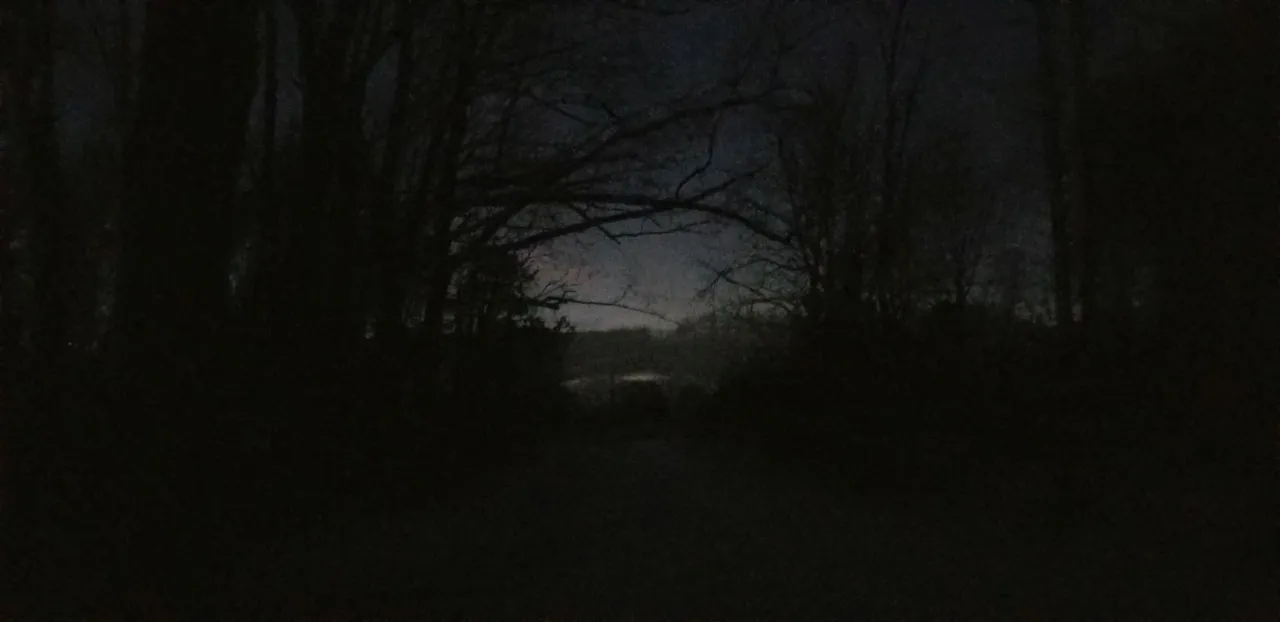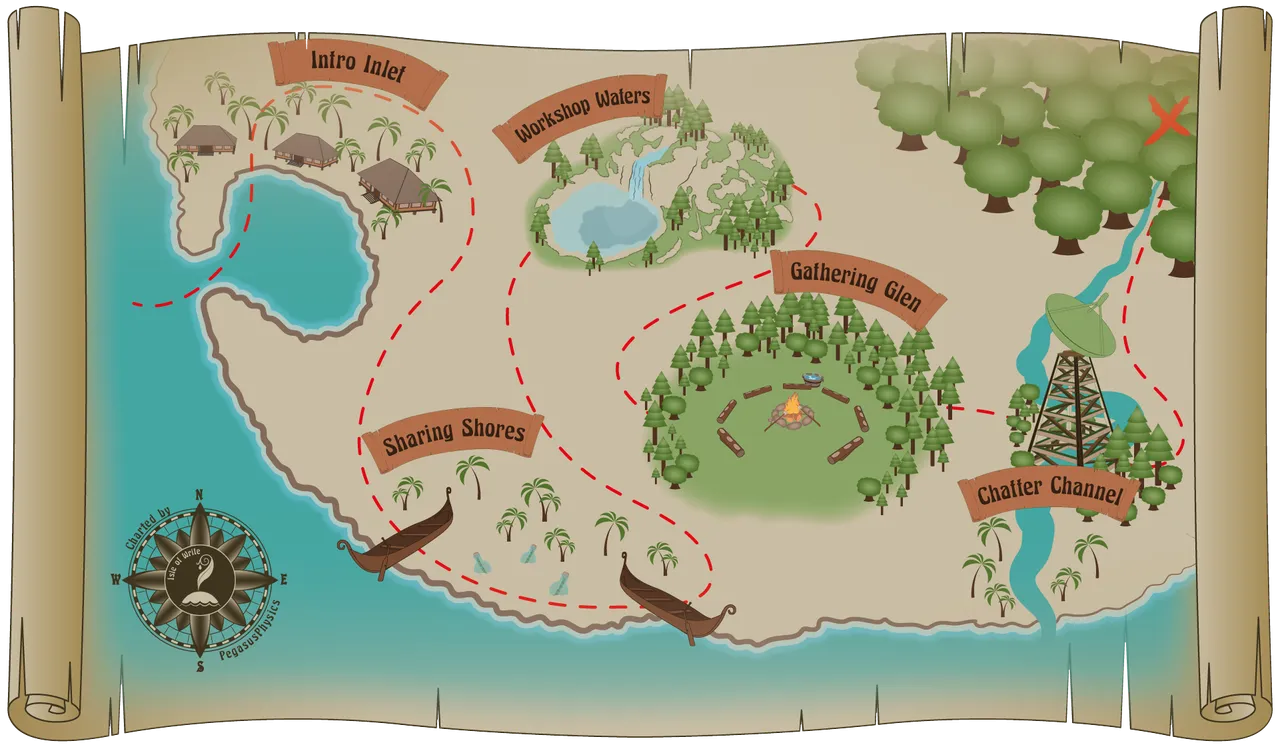
Wandering spirits
seeking to discern the truth
in the commonplace.

New year, new day, new life. Every moment of every day.
Let's make the most of it while we are still here to make a difference. Each second is a new chance awaiting us.
Due to the holidays and traveling, and just life intervening, it has been well over a week since my last post.
But as of today I am rededicating myself to Steemit, and will make a sincere effort to post daily, with as few off days as possible. I have a lot of catching up to do. ;-)

Today's post is a bit of a departure for me, as although I used to write a fair number of book and film reviews, I have done so only rarely in recent years. But this one is a must.
First a disclaimer, in that I only rarely review something that I did not like, both because I consider it something of a waste of energy, when there are so many good ones I would far rather bring to public attention, and because I would rather not bring their attention to works that I consider to be subpar.
There are of course exceptions, such as my scathing review of the book “Meg,” the first in the series upon which the recent film “The Meg” was based, as the author's descriptions of sharks and their behaviors is so egregiously inaccurate that I could not allow it to stand unchallenged, especially after the author repeatedly stated that he had “studied” megalodon for ten full years before writing the book.
And yet, somehow, in all that “studying,” he managed not to learn a damned thing about sharks, or about marine science in general. Amazing.

And I was not alone in my efforts. Richard Ellis, the eminent marine biologist, marine illustrator and author of twenty-three books on the world's oceans and marine life, including his 1976 “The Book of Sharks,” and who is well known for his impeccable and exhaustive research, also took the author to task,.
The author, to his detriment, shot back a hastily thought-out response to Ellis' take-down of his utter lack of fact-checking. He even fell back on that well-worn mark of the amateur, stating in effect that as a first time novelist, he should be given a pass on accuracy as, after all, it's only fiction.
What followed was a delightful and detailed comeback by Ellis, in which he soundly and hilariously wiped the floor with the guy, as the author had dug himself ever deeper in self-rationalization, and ultimately quit the discussion rather than continue his solid losing streak.
Unfortunately the L.A. Times archive linked above only contains a fraction of the exchanges between the two, but what is still there is still hilarious, and contains enough corrections and real facts from Ellis to be well worth reading. Hats off to Richard Ellis, whose books I've read and re-read with fascination since the 1970s, and whose paintings and research I deeply admire.

Fortunately, the studio chose to play the film strictly for laughs, a good call, as no one who has paid any attention during Shark Week could take the story seriously as written. But I digress.
I was recently asked in a professional setting what my favorite book was, and after at first balking because of the sheer number of books that I absolutely love, one title jumped out at me and demanded that I give it voice.
I proceeded to praise the book, its author, and to describe the basics of the plot to the woman in question, who then said that she wanted to read it based upon what I told her. Score!
Which is, in a meandering sort of way, how I came upon the book in the first place, on the recommendation from a friend of a different book by the same author.

Years ago, a close friend recommended a book in a letter he wrote to me: "The Deptford Trilogy," by Canadian author Robertson Davies, which is a one-volume collection of three of his previous novels: “Fifth Business;” “The Manticore;” and “World of Wonders.”
Among my friend's comments about the book was one I treasure: "It has absolutely no plot, but he's such an adept wordsmith that I look forward with dread to the day I finish it."
High praise indeed.
For whatever reason, mainly life getting in the way, I never read the book until, shortly after his death, I was rereading his letters, came across the above quote, and promptly ordered the book.

It was every bit as good as he said it was, had an amazing and intricate plot line, some uncanny parallels with our own relationship, and served up an excursion into the joys of the English language such as I had never before experienced.
I was hooked forever on Davies as an author.
Davies was a college professor and linguist, with a truly amazing vocabulary, and is one of very few authors I've read who repeatedly sends me to the dictionary for definitions, often multiple times on a single page, which I absolutely love. And yet his words are not chosen as an arcane linguistic exercise, but to further the story, add insights and shed new light.
And, while much of their meaning can be gleaned by context alone, so much more understanding and nuance is gained by actually looking up each word, that it adds immeasurably to the intricate and intertwined layering of the characters and their stories.
I have zero doubt that my own vocabulary, already rich thanks to my parents and love of reading, has gained immensely in the process, and for this I am grateful. I wouldn't be surprised if reading Davies has made me a much better writer.

I've now read nearly all of his books, fiction and nonfiction, by which I mean absolutely everything I've managed to find thus far. And his books are consistently excellent, entertaining, highly interesting, and absorbing.
My own favorite, which I've given to several people, is "Murther and Walking Spirits," with "murther" of course being an archaic form of the English word "murder."
The book begins as the protagonist unexpectedly walks into his bedroom to find his wife in bed with another man, whom he does not know, and the man kills him violently.
Not initially realizing that he has just died, our protagonist then finds himself sitting in a theatre, whereupon he begins to be shown not just scenes from his own life, but from the lives of his ancestors before him, further discovering that his sole companion in the ordeal is the man who has just murdered him, who is now sitting next to him in the theatre.

The story is alternately sad, darkly humorous, thought-provoking, disturbing, laugh-out-loud funny, and deeply moving. Like many of Davies other novels, "Murther and Walking Spirits" straddles the lines between the sacred and the profane, the religious and the secular, the factual and the mythological, and does so with a startling clarity of insight that illuminates the whole.
Even more, I was moved by the recognition of several of my own loved ones among his characters, including his mother, whose deep childhood wounding echoed that of my own mother, and to a lesser extent my own. I came away from the book feeling that I had gained insight into the shadows of human nature that made me at once kinder and more compassionate, both with others and with myself.
It is, unquestionably, one of the most interesting and intelligently written books it has ever been my pleasure to read, and I can't recommend it highly enough. I have re-read it several times, and will do so again, as his books are among those rarest of volumes from which I gain more and more meaning and insight with each reading.

My only caveat is that a thorough grounding in the English language is a requirement; this is likely to be a difficult read for anyone just learning the language, and/or not already reading at a higher-than-average level, as it is solid Master's level English usage.
That said, it is a more straightforward story than that in "The Deptford Trilogy," and thus not as difficult to follow for those unused to highly intricate and convoluted plotting.
It's a truly brilliant read, and utterly worthwhile. Enjoy, especially @carolkean, @rhondak, @katrina-ariel, @jayna, @enginewitty, @sircork, @riverflows, @mistermercury, @tanglebranch . . . and everyone else I'm too sleepy or brain dead to recall at the moment.
If you are a true lover of the English language, you owe it to yourself to read Robertson Davies. A great starting point is his "Ghost Stories," a collection of short stories, which is a fast, fun and thoroughly enjoyable read.

So, on a final note, will I bother to see the film "The Meg?"
Oh yes. It's already in my Netflix queue.
First, I love Jason Statham, but mostly, I'm perverse enough to thoroughly enjoy ripping apart films that are factually bereft, which I already know from the first book, and from film reviews I've read, to be the case.
As just one example, there is evidently a scene in which a boat that has been engaging in shark finning, a clearly horrible and unsustainable practice, has a bunch of dead sharks floating around it.
So, bravo for bringing attention to a deplorable practice. But, ummmmm, nope. Not even remotely possible.

Sharks are elasmobranchs, and don't have swim bladders, as bony fish do. When they die they sink. Period. End of story.
So whomever they chose as a marine science consultant on the film flunked science.
In the book, my "favorite" scene was toward the end. The hero, who we are supposed to believe has a Ph.D. in paleontology, and whose father was a marine scientist along the lines of an American Jacques Cousteau, is hurtling to the surface from the depths of the Mariana Trench, which in real life would kill him dead.
In the book, however, he is wondering to himself whether, if he ejects from the bathyscaph at ninety feet depth, the "crushing pressure" will kill him.
Newsflash: newly certified SCUBA divers are certified to dive up to 99 feet in depth, or three atmospheres, because it is considered a relatively safe and easy dive, provided that they don't do anything stupid.

So in ten years of "research," he failed to call a single dive shop, which might have saved him from a number of other factual errors as well. Not to mention that most if not all of the errors could have been avoided with a few well placed Internet searches. Or a call to any library.
And don't even get me started on the sixty foot bioluminescent shark. That lives at the bottom of the Mariana Trench. Really.
I'm hoping that "The Meg" will at least be a "so bad it's funny" film, rather than "so bad I want to throw heavy objects at the screen," but time will tell. I'll keep you posted.

I am dedicating half the liquid proceeds from this post to @thewritersblock, with deep and sincere thanks to @rhondak for her hard work and dedication in bringing together such a talented and generous group of writers in one community.
We all appreciate you far more than you know.
The photo above was taken by me about a year ago with my Samsung Note 8 smartphone.

#writing #bookreview #haiku #literature #tribegloballove #tarc #yah #ecotrain #thewritersblock #smg #ghsc #thirtydayhaikuchallenge #teamgood #steemsugars #teamgirlpowa #womenofsteemit #steemusa #qurator #steemitbasicincome #bethechange #chooselove #photography #neighbors #beauty #love #animals #homesteading #permaculture #naturalhealing #grace #poetry #philosophy #beablessing #naturalremedy #gratitude #abundance #give #family #peace #tranquility #giving #donating #philanthropy #naturalhealing #pets #cryptocurrency #culture #peacemaking #peacemaker #friendship, #science, #sharks, #megalodon, #themeg





https://steemitimages.com/0x0/https://tinyurl.com/y93h9wt4


art and flair courtesy of @PegasusPhysics

 Us On Discord. https://discord.gg/hPJs5Rb
Us On Discord. https://discord.gg/hPJs5Rb

